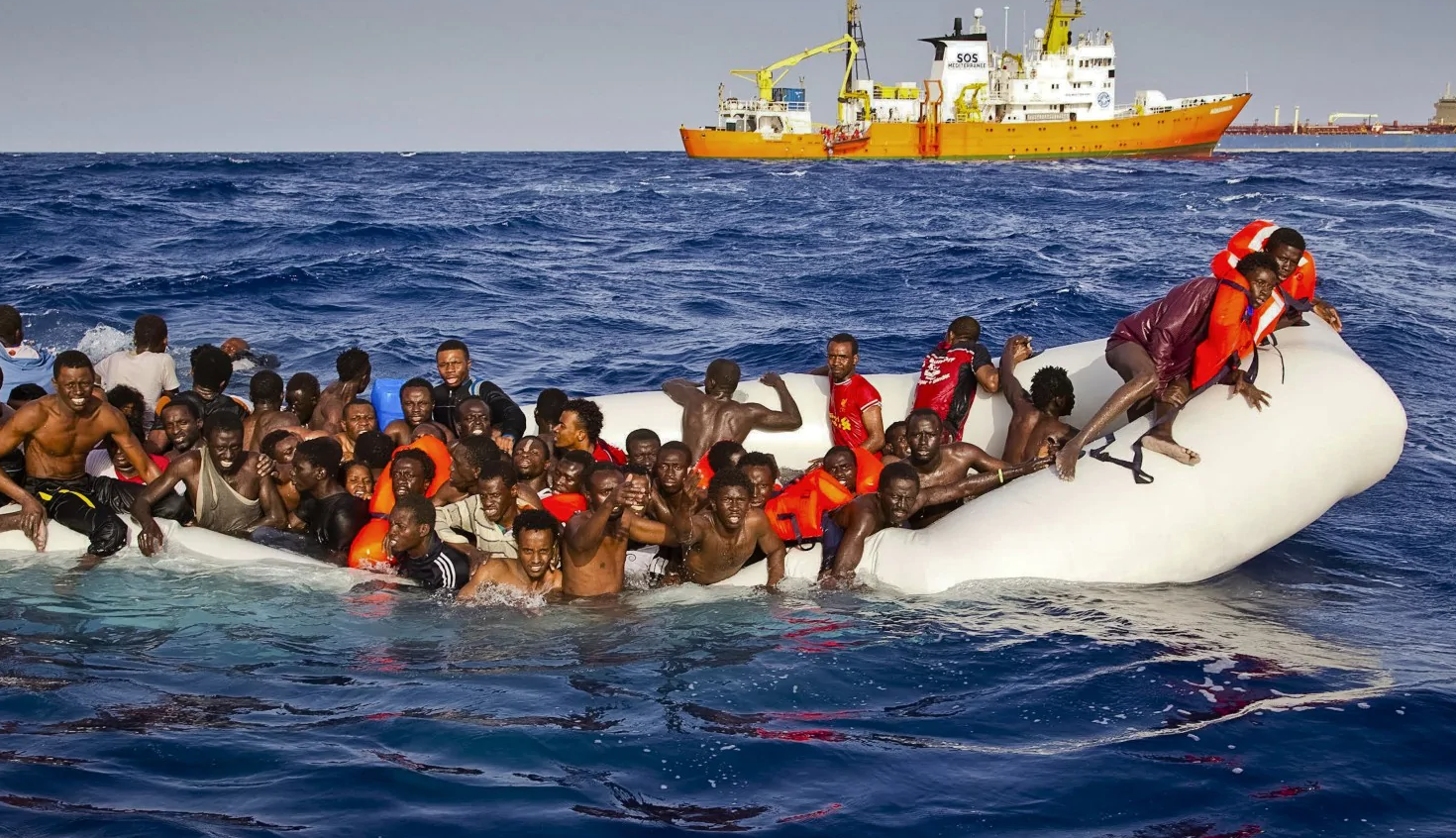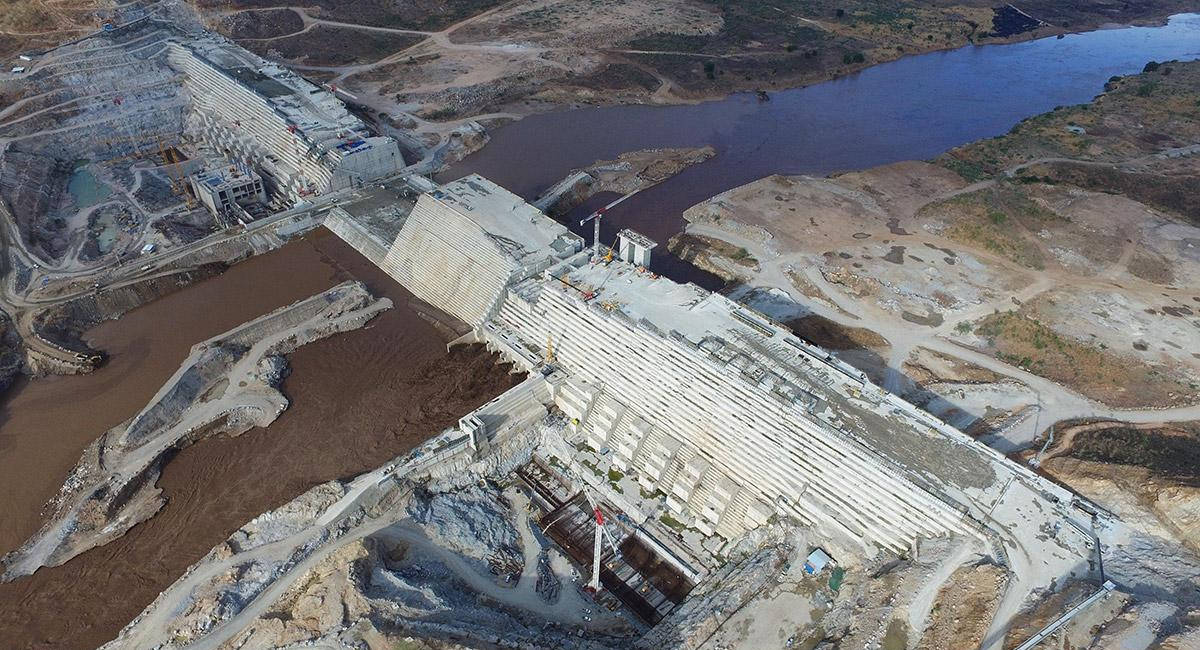Racists in Europe must have breathed a sigh of relief over the weekend. Thousands rallied across the continent in solidarity with Black Lives Matter and against police brutality, but few even mentioned that the EU is showing a similar disdain and disregard for Black lives at its borders.
In the US, the legacy of slavery is obvious and noticeable on a daily basis, as the victims of American slavery are part of the country’s society. In Europe, the victims of centuries of oppression and slavery are hidden away, kept from even entering the world’s most prosperous region and claiming even a fragment of the results of their ancestors’ labor.
When European empires stretched across the globe, as recently as 70 years ago, colonizers constantly reminded their subjects of their “mother country” in Europe. Now that these countries no longer profit from them, the descendants of the colonized, often separated by only a single generation, are considered unwelcome foreigners, with no right to enter the continent that their ancestors’ suffering helped build.
In a case of incredible projection, Europeans who once invaded countries to extract resources now accuse poor migrants of trying to “profit from and exploit” Europe’s welfare system that their ancestors helped build as much as Europeans did.
Europeans remain shocked and incredulous in the face of US racism but remain blind to their own similar or often even worse treatment of those that do not have the right immigration papers.
Anti-racism protests
European leaders were quick to express their condemnation of the brutal murder of George Floyd and some even highlighted similar forms of racism in Europe. The continent’s continued complicity in the daily deaths and suffering of its own colonial victims did not receive any attention.
Just in the one week since the anti-racism protests spread across the EU, dozens of Black people experienced their own silent and unreported “I can’t breathe” moment as they drowned in the Mediterranean.
Many have commented on the apparent lack of accountability for police violence in the US, but if George Floyd had been a drowning migrant, those who called for the officer to stop could have been prosecuted, as saving a migrant’s life during sea crossings is a crime in several EU countries. All sense of human decency appears to have been abandoned in the concerted effort to ensure Europe’s wealth is never shared with its colonial victims that helped create that wealth.
Countries such as Britain, France, Spain, the Netherlands, and Italy that have extracted untold amounts of wealth from their colonial subjects now accuse the descendants of their victims of exploiting them, with no apparent sense of shame whatsoever. “Let them die because this is a good deterrence,” is how a UN rapporteur described the European strategy.
FRONTEX
In order to avoid a confrontation with Europe’s colonial past, the EU has set up a paramilitary force in control of concentration camps, advanced military hardware, mobilized a $350 million budget, and granted an unspoken license to kill. Frontex, the European Border and Coast Guard Agency is Europe’s version of a militarized police force, conveniently hidden from citizens’ view and used to commit daily human rights violations.
Black migrants in Europe are not even considered worthy of human rights, if they are not lucky enough to already be in possession of a European passport. Those unfortunate people in dangerously overcrowded boats in the Mediterranean are all structurally denied their human right of asylum (Article 33 of the Geneva Convention on Refugees.)
They are similarly denied the human right to not experience inhuman and degrading treatment (Article 3 of the European Convention for the Protection of Human Rights and Fundamental Freedoms) and the right to leave any country (Article 13.2 of the Universal Declaration of Human Rights.)
By keeping migrants away from European shores, the EU is ensuring it does not have to recognize the rights of those attempting the dangerous journey and instead putting that responsibility on regimes it knows will not uphold them.
Europeans have some of the most powerful passports on earth and can travel virtually unimpeded, but apparently see no moral problem in the fact that others are barred from entering their territory.
Deal with the devil
Increased scrutiny of FRONTEX has not changed Europe’s ways, instead it has changed its methods to avoid responsibility. Europe has made deals with oppressive regimes in Turkey and Libya that exchange large amounts of euros to move the structural and continuing death toll of Black people away from European coasts and towards those of North Africa.
The move has led to Libyan coast guard and European ships forcing migrants back to African shores, Libyan concentration camps full of migrants, and a reemergence of slave auctions in Libya.
But another devil with whom European politicians are making a deal is the anti-immigration voting bloc that they aim to appease. Politicians employ many of the brutal strategies to keep former colonial subjects out because of fear of losing support from Europe’s anti-immigrant voters. Far from a fringe group, they constitute enough political power to make even left-wing politicians approach the topic with caution.
Many on Europe’s right claim the continent is doing enough to help Africa through development aid. But the decreasing development budgets of EU countries stand in stark contrast with the net outflow of over $16.3 trillion of wealth extracted from developing countries to developed ones since 1980.
American law enforcement disgracefully kills an average of 1,000 Black people every year, while the EU’s tally in 2019 was 1,283. Its immigration policies killed 2,299 in 2018. The number of recorded deaths has gone down only because rescue ships are no longer searching for migrants and therefore not recording the death toll.
Since 2014, ships have found at least 19,164 migrants dead in the Mediterranean, all simply human beings trying to exercise their human right to claim asylum in Europe.
While Europeans protests in solidarity with America’s anti-racist movements, perhaps they should take a deep look at their own structural and continuing murder of their former colonial subjects in an effort to keep “them” away from Europe’s shores.
Europe needs to stop wagging its finger at others and perhaps take a deeper look into the structural racism and xenophobia that keeps Europe rich at the cost of Black lives, which, unlike those in the US, are lost far away from cameras and moral outrage.


